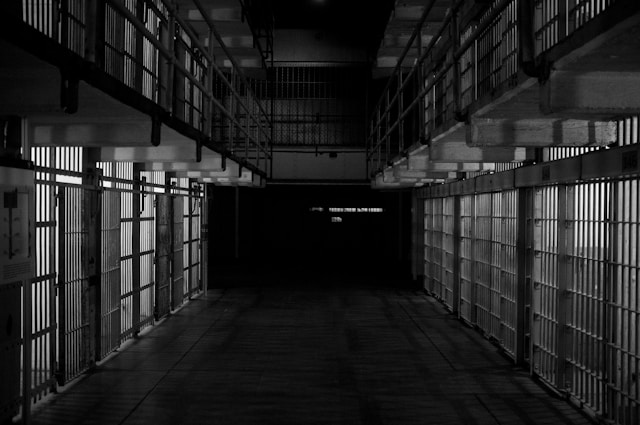Key Takeaways:
- Detailing the role and function of the bail bond system in upholding justice.
- Examining the responsibilities of all stakeholders within the bail bond process.
- Clarifying financial expectations and potential risks when engaging in bail bond agreements.
Despite the bail system’s intent to balance fairness with public safety, misconceptions and lack of information can lead to unnecessary hardship. By becoming informed about the bail bond mechanics, its participants, and the importance of adhering to judicial requirements, one can navigate these challenging situations with greater confidence and peace of mind.
Table of Contents:
- Bail Bonds Explained
- The Bail Bond System’s Stakeholders
- Navigating Financial Commitments
- Legal Rights and the Bail Bond Process
Bail Bonds Explained
A bail bond serves as an agreement between the court and a defendant or their representative, where a specific amount of money assures that the defendant appears at all required court dates. Bail is an amount the court sets to ensure a defendant’s return and participation in the legal process. There are various bail bonds, including surety, property, and cash bonds, each tailored to different circumstances but fundamentally sharing the goal of temporary release from detention while awaiting trial.
Experts in bail bonds Monroe County, PA, emphasized that the bail bond system is a two-party agreement involving the accused and a bail bondsman, with the court overseeing the adherence to this financial contract. When bail is set, if the defendant cannot afford to pay the total amount, they or a representative can secure a bail bond by paying a percentage of the total bail to a bondsman, who, in return, assures the court of the defendant’s compliance with all judicial proceedings. This percentage is typically non-refundable and serves as the fee for the bail bonds service.
The Bail Bond System’s Stakeholders
The stakeholders in the bail bond system comprise a network of individuals and institutions, each fulfilling vital roles. Bail bond agents serve as sureties and facilitate the acquisition of bail for the defendant in exchange for a fee. The judicial system, comprising judges and court officers, determines the bail amount and monitors compliance with bail conditions. On the other side, defendants and their families are often in dire need of these services. They must navigate the stressful situation of securing release while facing the potential impact of legal proceedings on their personal lives.
It’s common for family members or friends to become involved in the process, as they may offer collateral or pay the bond agent’s fee. Their role cannot be understated, as they, too, shoulder significant responsibility and risk—being financially liable should the defendant fail to meet the bail conditions. The bondsman must ensure the client understands their obligations, and the court expects that the bail conditions are strictly followed.
Navigating Financial Commitments
Entering into a bail bond agreement comes with distinct financial obligations. The most immediate cost is the premium, which, as mentioned, is a percentage of the total bail amount—commonly around ten percent. This premium is the bail bond agency’s fee for their services. It is typically non-refundable, even if the accused is found not guilty or the charges are dropped. In addition to the premium, collateral may be required as a form of security to protect the bail bond company’s investment. Collateral can range from real estate to vehicles, jewelry, or any other valuable assets the bail bond company deems acceptable.
The responsibilities in a bail bond contract should not be taken lightly. Failing to honor the terms, particularly regarding court appearances, can lead to the forfeiture of collateral, additional charges or fines, and the potential rearrest of the defendant. The bail bond company may employ recovery agents, sometimes bounty hunters, to locate and return a defendant who has absconded, further emphasizing the seriousness of the bail bond agreement’s conditions.
Legal Rights and the Bail Bond Process
The legal rights that protect the accused are at the core of the bail bond process. Every defendant has the right to be treated fairly and fully understand the bond conditions they agree to. When going through the bail process, it is critical to seek out credible information and possibly the advice of an attorney to ensure these rights are upheld. Missteps or a lack of understanding can lead to overwhelming stress and financial hardship.
Defendants also have the right to challenge their bail if it is unfairly high or if their rights are not respected during the bail proceedings. Organizations like the American Civil Liberties Union advocate for fair treatment and due process, offering valuable information that can assist defendants and their families during this process. Consulting such resources or a qualified lawyer is recommended for anyone involved in the bail bond process.
